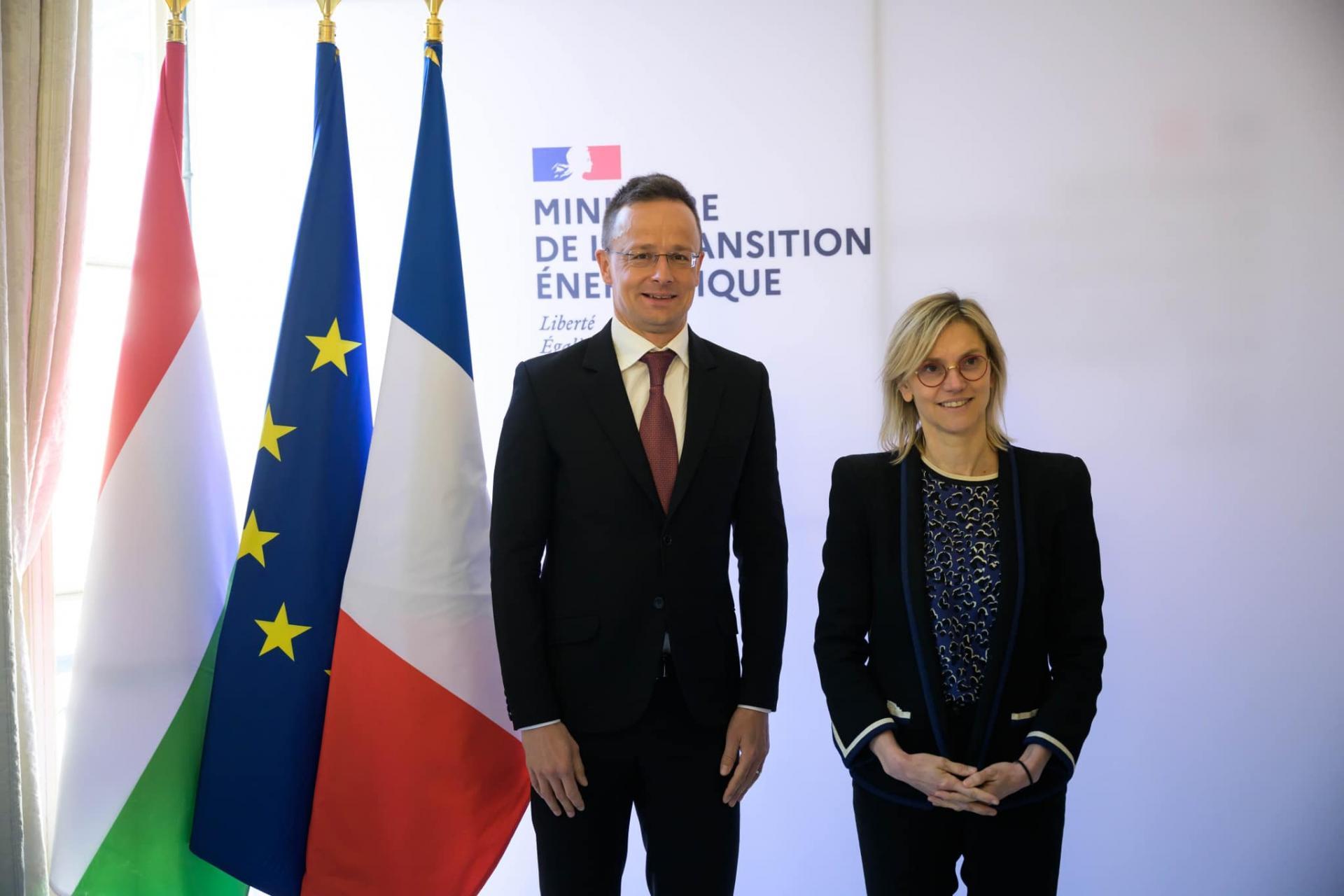 Germany is still blocking Siemens Energy from implementing an agreement to deliver control systems for Hungary’s Paks-II NPP. Siemens consortium partner, France’s Framatome, has already approved it, Hungarian Foreign Minister Péter Szijjártó said during a meeting in Paris with French Energy Minister Agnes Pannier-Runacher. Szijjártó stressed that the expansion of the Paks NPP is key to Hungary’s long-term energy security.
Germany is still blocking Siemens Energy from implementing an agreement to deliver control systems for Hungary’s Paks-II NPP. Siemens consortium partner, France’s Framatome, has already approved it, Hungarian Foreign Minister Péter Szijjártó said during a meeting in Paris with French Energy Minister Agnes Pannier-Runacher. Szijjártó stressed that the expansion of the Paks NPP is key to Hungary’s long-term energy security.
He explained that the control system for Paks-II is being supplied by a German-French consortium. However, as this is now a dual-use technology from a legal point of view, the current European regulatory environment requires the relevant national export authority to authorise its civilian use. This has already been done by France, but not by Germany.
“The French have a completely rational, pragmatic, rational approach to this issue, not a political or ideological approach, but one based on physical reality,” he said. The physical reality is that nuclear energy is a sustainable, cheap, environmentally friendly and efficient way of producing energy. It also provides a degree of security in the current highly volatile international energy market environment with unreasonably high prices,” Szijjártó said.
He added: “By contrast, the German government continues to block Siemens Energy from delivering the control system already contracted for the Paks NPP. This could be seen as an attack on our sovereignty, as security of energy supply is a matter of sovereignty and the energy mix is a national competence.” He noted that the two members of the German government, the Minister for Economic Affairs and the Minister for Foreign Affairs, who should authorise the delivery, “have no legal basis whatsoever to block this delivery and jeopardise Hungary’s future energy security”.
Szijjártó highlighted that there is a strategic understanding between Hungary and France on the importance of nuclear energy, and that this is now the most successful area of bilateral cooperation. He recalled that the two countries had worked together to oppose discrimination against nuclear energy and to urge the European Union to recognise nuclear energy as sustainable.
Following his meeting with Pannier-Runacher, Szijjártó said neither Hungary or France believe sanctioning nuclear cooperation with Russia is beneficial. "Together we fought hard for the EU to classify nuclear energy as sustainable and together we are fighting against discrimination against nuclear energy,” he said. "We were successful, and today we agreed to maintain this strategic cooperation in the field of nuclear energy in the next period as well."
He also emphasised that the parties agree that it makes no sense to impose sanctions on the Russian nuclear industry. “In any case, Hungary would not have given its consent to possible sanctions concerning nuclear cooperation. We are glad that France also sees that this type of measures would be pointless,” he said.
Szijjártó stressed that professional cooperation in the field of nuclear energy with Russia should be maintained. "The countries that can produce a significant part of the energy they use themselves will be in an advantageous position, and for us this option is offered by nuclear energy, and thus the investment in Paks."
Image: Hungarian Foreign Minister Péter Szijjártó has met with French Energy Minister Agnes Pannier-Runacher to discuss the current situation regarding Germany's reluctance to allow control systems to be delivered to the Paks-II NPP






